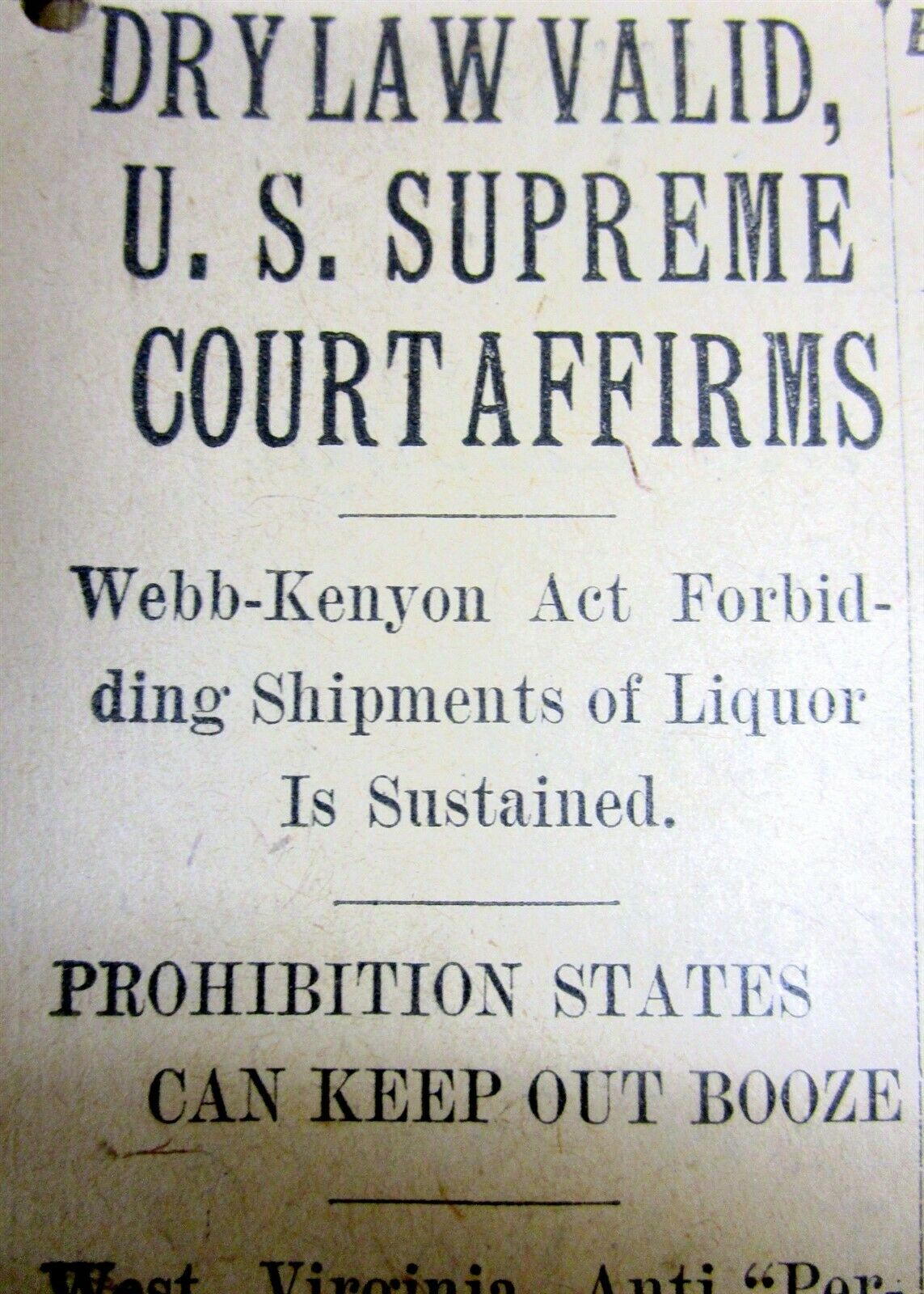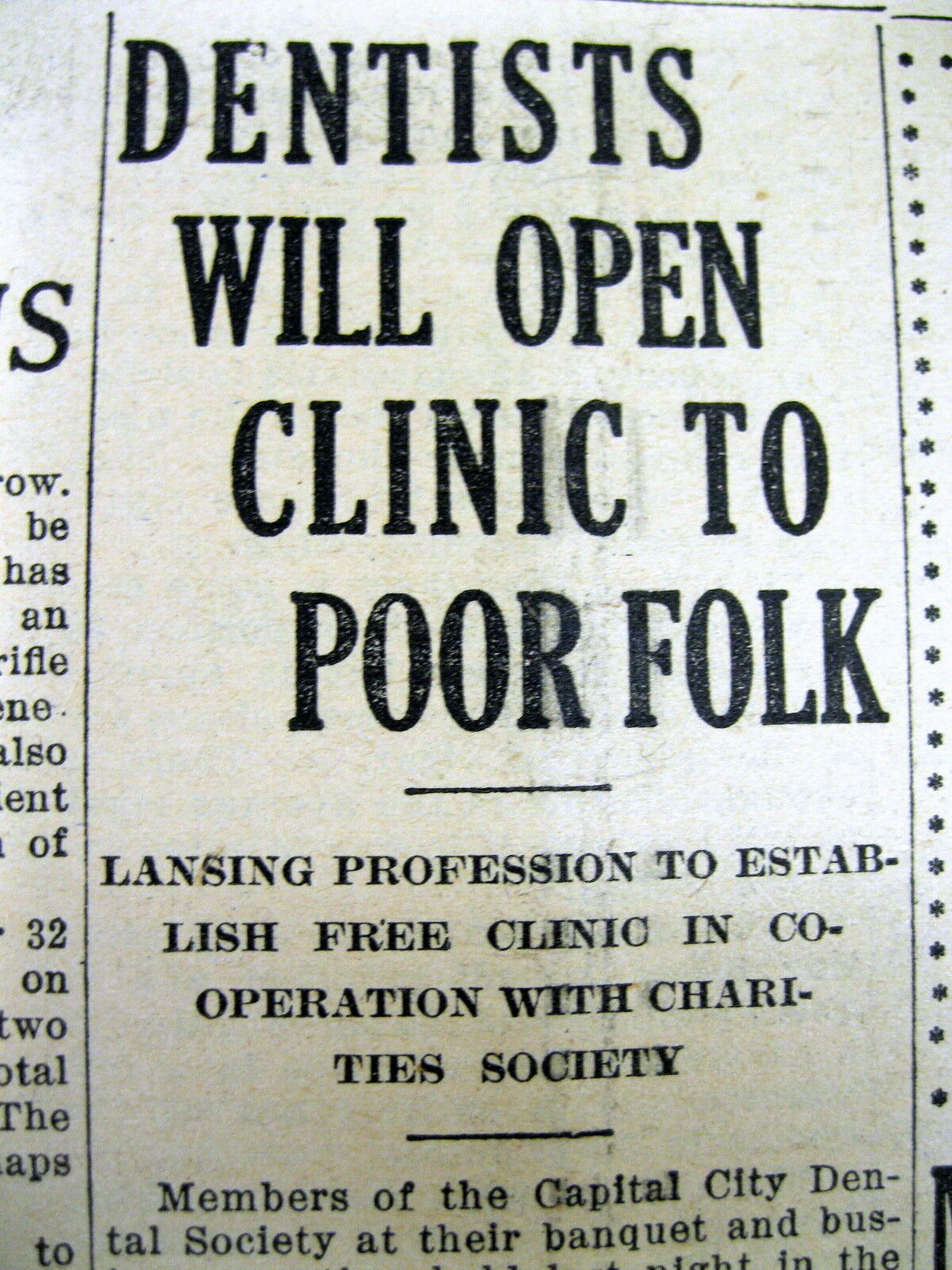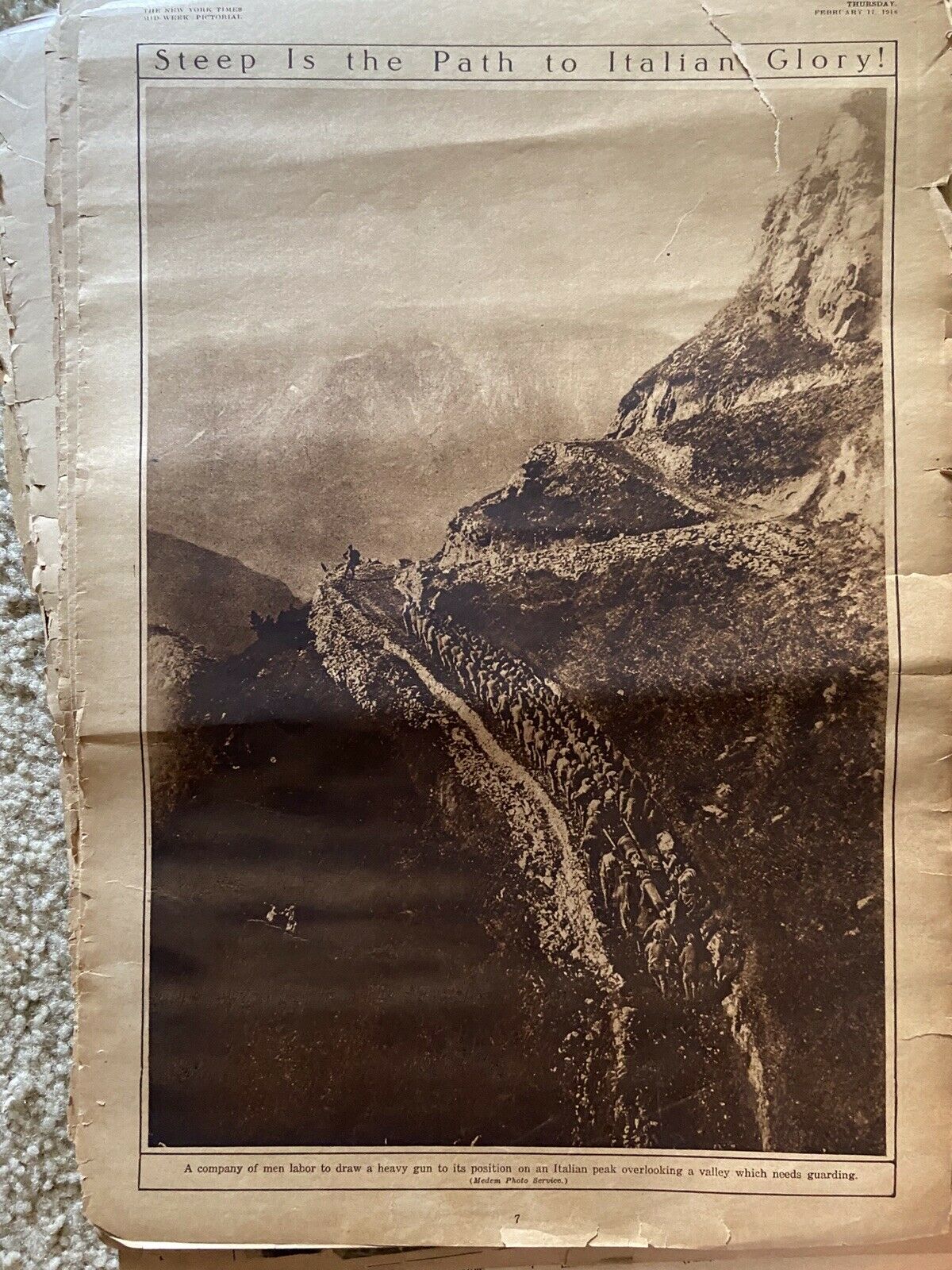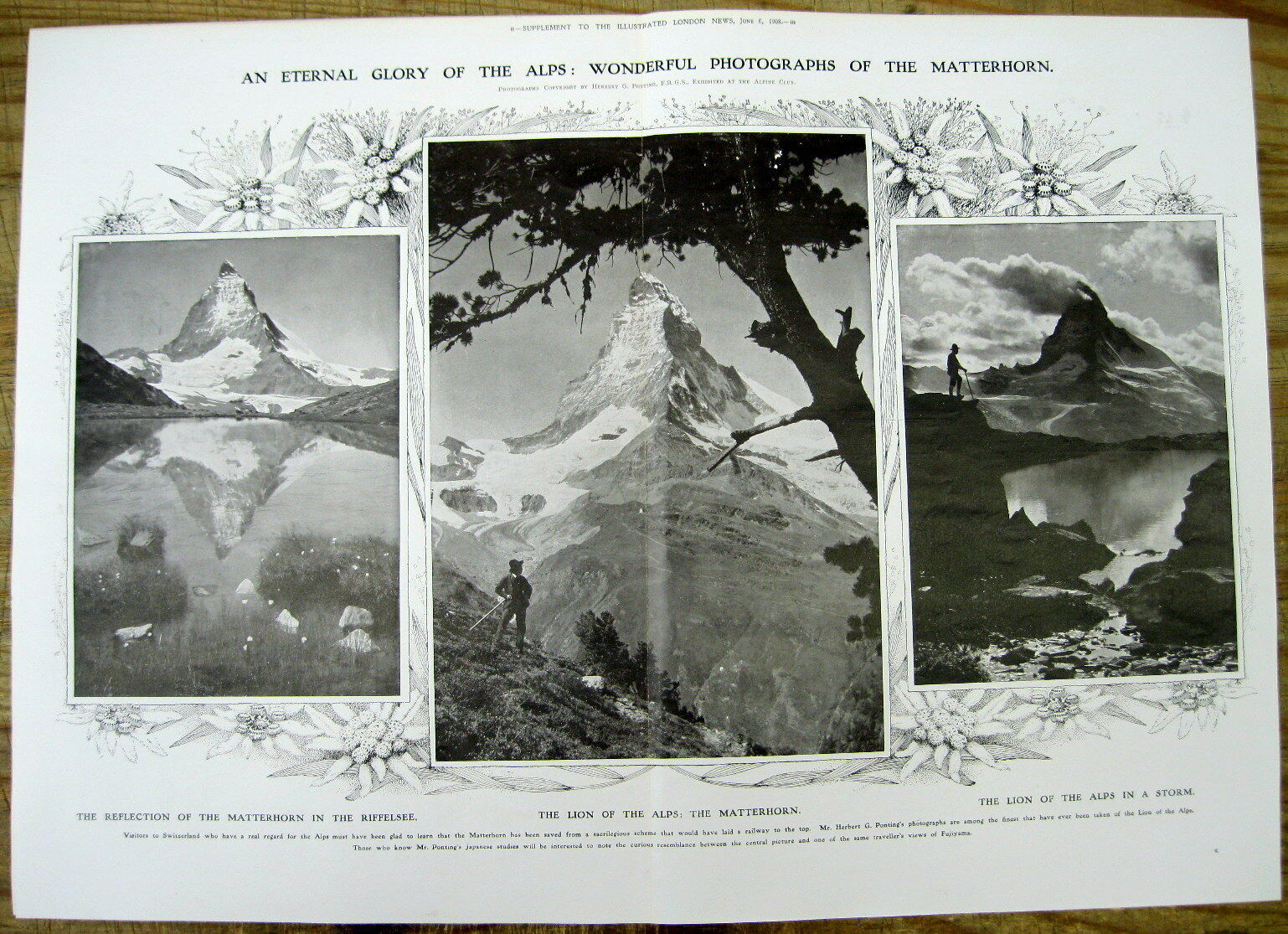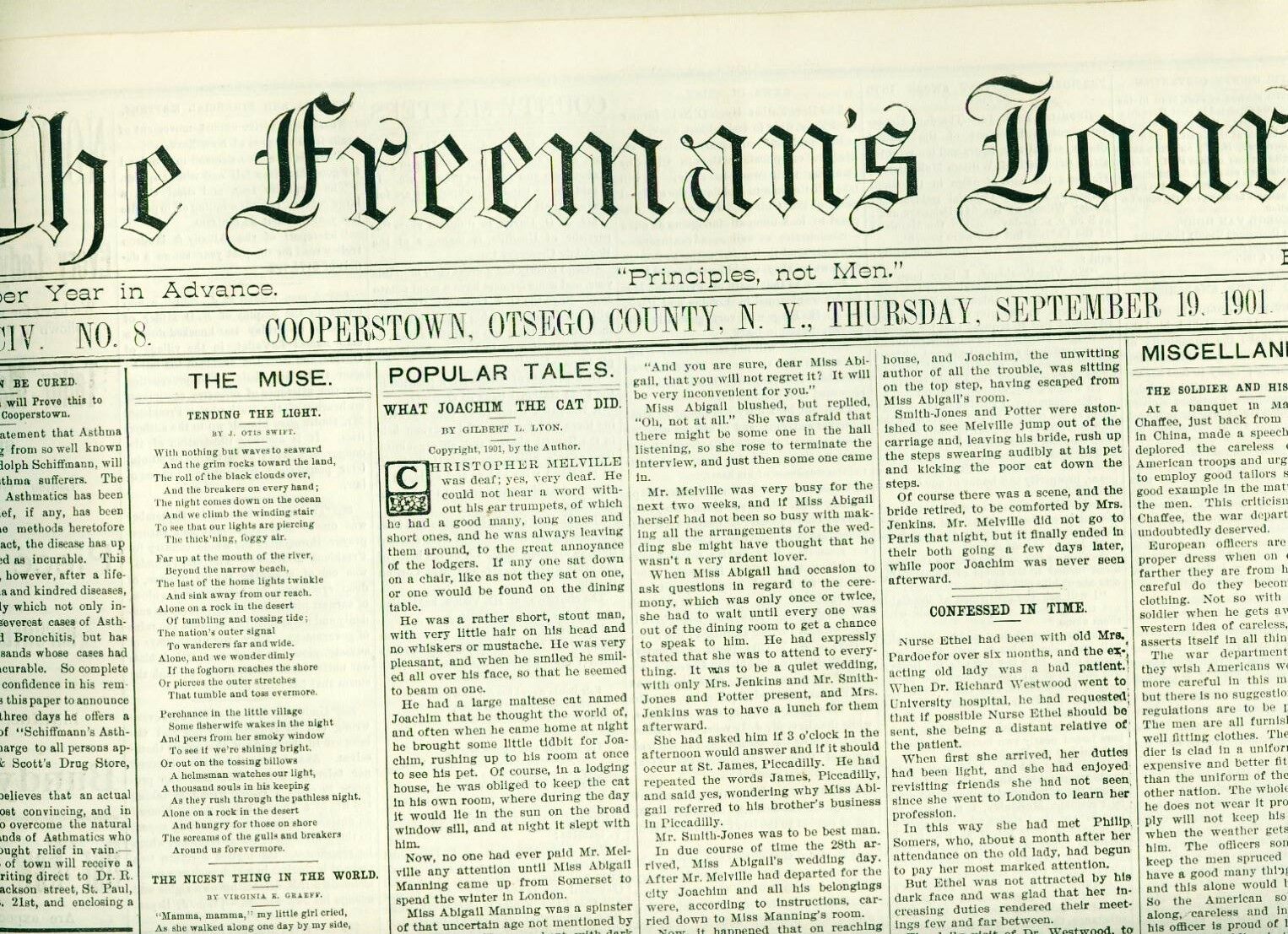-40%
1917 newspaper PROHIBITION is RULED CONSTITUTIONAL by the US SUPREME COURT
$ 18.48
- Description
- Size Guide
Description
1917 newspaper PROHIBITION is RULED CONSTITUTIONAL by the US SUPREME COURT1917 newspaper PROHIBITION is RULED CONSTITUTIONAL by the US SUPREME COURT
- inv # 7R-244
Please visit our
EBAY STORE
for THOUSANDS MORE HISTORICAL NEWSPAPERS for SALE or at auction
SEE PHOTO(s) - COMPLETE ORIGINAL NEWSPAPER, the
New York Sun
(NY City) dated Jan 9, 1917. This original newspaper contains prominent font page "stacked" headings beginning with: "DRY LAW VALID, U. S. SUPREME COURT AFFIRMS / Webb-Kenyon Act Forbidding Shipping of Liquor Is Sustained / Prohibition States Can Keep Out Booze... "
Display newspaper announcing the US Supreme Court ruling Prohibition to be constitutional
The Webb–Kenyon Act was a 1913 law of the United States that regulated the interstate transport of alcoholic beverages. It was meant to provide federal support for the prohibition efforts of individual states in the face of charges that state regulation of alcohol usurped the federal government's exclusive constitutional right to regulate interstate commerce.
The statute reads:
"The shipment or transportation, in any manner or by any means whatsoever of any spirituous, vinous, malted, fermented, or other intoxicating liquor of any kind from one State, Territory, or District of the United States, or place noncontiguous to, but subject to the jurisdiction thereof, into any other State, Territory, or District of the United States, or place noncontiguous to, but subject to the jurisdiction thereof, which said spirituous, vinous, malted, fermented, or other intoxicating liquor is intended by any person interested therein, to be received, possessed, sold, or in any manner used, either in the original package, or otherwise, in violation of any law of such State, Territory, or District of the United States, or place noncontiguous to, but subject to the jurisdiction thereof, is hereby prohibited."
The law was named for its principal sponsors, Democratic Rep. Edwin Y. Webb of North Carolina and Republican Sen. William S. Kenyon of Iowa. Congress passed the legislation and sent it to the President on February 18, 1913. Ten days later, on February 28, 1913, President William Howard Taft, in the closing days of his administration, vetoed the law on constitutional grounds, believing that it delegated to the individual states the federal government's exclusive right to regulate interstate commerce. He submitted with his veto an opinion by Attorney General George W. Wickersham. The Senate overrode his veto the same day by a vote of 63 to 21, and the House of Representatives did so by a vote of 246 to 85 on March 1, 1913.
The law did not simply prohibit the transport of alcoholic beverages into "dry" states, that is, states that banned alcohol. At the time of its passage and for years afterward, states varied greatly in their regulation of alcohol. Few banned alcohol entirely and were "bone-dry." Some allowed liquor to be ordered by mail but limited the amount per month per person or prohibited its receipt by businesses. They differed as well in their definitions of such beverages by alcohol content. The Webb–Kenyon Act established the federal government's endorsement of the right of each state to control the receipt, distribution, and consumption of alcoholic beverages within its jurisdiction.
Its passage, followed shortly by the passage of an income tax, was recognized as a major progressive victory and gave added impetus to the prohibition movement's drive for a constitutional amendment to ban alcohol nationwide.
Constitutionality:
The act faced challenges in the courts and the courts differed in their consideration of its constitutionality. Some lower courts declared complete bans on alcohol at the state level unconstitutional. The Supreme Court finally delivered an opinion of the Act on January 8, 1917 in the case of James Clark Distilling Co. v. Western Maryland R. Co. The Court sustained the Act by a vote of 7 to 2 in a decision by Chief Justice White in which a total of 6 justices concurred. The Court also affirmed the right of each state to regulate alcohol even to the extent of banning it completely. The case was a challenge to a West Virginia statute that banned shipments even for personal consumption.
Congress responded to the Supreme Court decision by immediately enacting legislation to make the District of Columbia "bone-dry."
Opponents of nationwide prohibition hoped the Supreme Court decision demonstrated that the ability of each state to exercise complete control over alcohol within its borders would make a constitutional amendment superfluous. "It is better," said the New York Times, "that prohibition laws should be made effective in communities that want them than that by a Federal amendment the rule of prohibition should be extended over unwilling States."
The Supreme Court added a further decision upholding the law in its next term in a case involving a North Carolina statute requiring railroads to maintain records of liquor shipments and recipients.
Repeal of prohibition
The Webb–Kenyon Act became irrelevant with the adoption of national prohibition under the Eighteenth Amendment to the United States Constitution and the Volstead Act. With the movement to repeal prohibition by the adoption of the Twenty-first Amendment to the United States Constitution, the question of the Act's validity and enforcement became a political and policy issue once again. The Act was cited as a protection that would shelter dry states if prohibition were repealed.
Very good condition. This listing includes the complete entire original newspaper, NOT just a clipping or a page of it. STEPHEN A. GOLDMAN HISTORICAL NEWSPAPERS stands behind all of the items that we sell with a no questions asked, money back guarantee. Every item we sell is an original newspaper printed on the date indicated at the beginning of its description. U.S. buyers pay priority mail postage which includes waterproof plastic and a heavy cardboard flat to protect the purchased item from damage in the mail. Upon request by the buyer, we can ship by USPS Media Mail to reduce postage cost; however, please be aware that USPS Media Mail can be very slow in its time of transit to the buyer. International postage is quoted when we are informed as to where the package is to be sent. We do combine postage (to reduce postage costs) for multiple purchases sent in the same package.
We list thousands of rare newspapers with dates from 1570 through 2004 on Ebay each week. This is truly SIX CENTURIES OF HISTORY that YOU CAN OWN!
Stephen A. Goldman Historical Newspapers has been in the business of buying and selling historical newspapers for over 50 years. Dr. Goldman is a consultant to the Freedom Forum Newseum and a member of the American Antiquarian Society. You can buy with confidence from us, knowing that we stand behind all of our historical items with a 100% money back guarantee. Let our 50+ years of experience work for YOU ! We have hundreds of thousands of historical newspapers (and their very early precursors) for sale.
Stephen A. Goldman Historical Newspapers
has been in the business of buying and selling historical newspapers for over 50 years. We are located in the charming Maryland Eastern Shore town of OXFORD, Maryland.
Dr. Goldman is a consultant to the Freedom Forum Newseum and a member of the American Antiquarian Society. You can buy with confidence from us, knowing that we stand behind all of our historical items with a 100% money back guarantee. Let our 50+ years of experience work for YOU ! We have hundreds of thousands of historical newspapers (and their very early precursors) for sale.
We invite customer requests for historical newspapers that are not yet located in our extensive Ebay listing of items. With an inventory of nearly a million historical newspapers (and their early precursors) we are likely have just the one
YOU
are searching for.
WE ARE ALSO ACTIVE BUYERS OF HISTORICAL NEWSPAPERS, including large and small personal collections, bound volumes, significant individual issues, or deaccessions from libraries and historical societies. IF YOU WANT TO SELL, WE WANT TO BUY !!!
Powered by SixBit's eCommerce Solution
